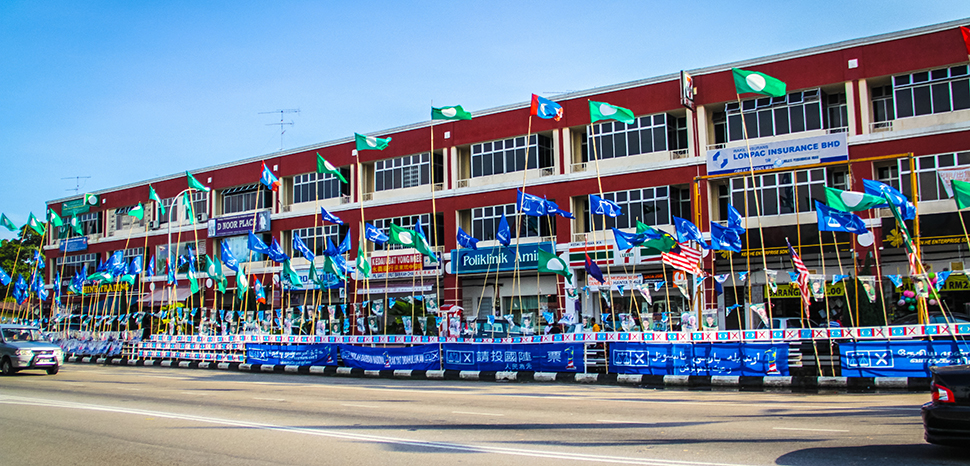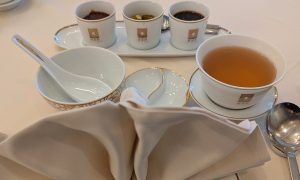From BN’s stunning defeat to the first hung parliament in Malaysian history, the 15th general election has delivered plenty of surprises.
Malaysians awoke on Sunday, the day after the November 19 election, facing a hung parliament for the first time in the country’s political history, after a divisive and hotly contested general election resulted in no single party getting enough votes to form a new government.
A simple majority of the 220 contested seats in parliament is needed to claim victory. No party has earned more than 81 seats, however.
The result has thrust the Southeast Asian country into a holding pattern, as rival leaders scramble to broaden collations in renewed efforts to form a clear majority. Whoever wins will name Malaysia’s fourth prime minister in as many years, as Malaysia faces the aftermath of the Covid pandemic, with rising inflation and cost of living concerns hitting virtually all sectors.
As for the election itself, the leaders of the two parties which received the most votes – Anwar Ibrahim of Pakatan Harapan (PH) and Muhyiddin Yassin of Perikatan Nasional (PN) – are each insisting they have enough support from other quarters to achieve a clear majority and form a new federal government.
Obviously they both cannot be right.
Anwar has a habit of issuing statements insisting he has the support of various parties or members of parliament, but with few details being provided. That is again the case here, as he declined to offer any evidence of the support he claims to have.
According to a video interview by Astro Awani, Anwar was asked if he had the numbers for a simple majority in parliament and which parties he was aligning with.
He replied, “As I said last night, it is done but I want it to be really proper and let them [political parties] issue their own statements.
“I am happy because we have virtually settled this. With a level of support, I am confident, God willing, I will be given the chance, the opportunity to lead this country,” Anwar said.
When asked specifically which parties he was collaborating with, Anwar would only reply, “Let them come out with their own statements. Probably in the short term.”
A HISTORY-MAKING ELECTION
Malaysia’s 15th general election made history for a number of reasons. It’s the first election to feature the country’s youngest voters, as the minimum age was recently lowered from 21 to 18. Estimates suggest that this cohort added some four million votes to the final tally.
Despite heavy rains and localised flooding in several areas leading up to polling day, the election’s turnout rate was robust, with estimates coming in at around 74% of eligible voters casting their ballots.
It was also perhaps the most fiercely contested election, with over 900 candidates vying for seats in parliament. After the last election, which showed that Barison Nasional’s decades-long dominance was no longer a given, this election had a much livelier feel, with the old guard competing against newer names, and no preordained outcome for electoral victory in sight for any party.
BN’s troubles, which emerged into full view after GE14, only grew in scope, with the once-unassailable coalition managing to win only 30 seats nationwide. It was a stunning repudiation by Malaysian voters, who have made their voices clear that – whatever the course to be charted may be – they no longer want “business as usual” when it comes to the leadership of the country. Across the country, voters repeatedly asserted their desire for an end to Malaysia’s political instability, and clearly sought a changing of the guard.
On that note, some of the most recognisable names in Malaysian politics were sent to defeat, including former two-time Prime Minister Tun Mahathir Mohamad, who decisively lost his Langkawi seat with less than 7% of the vote. It was his first loss there in 53 years, and is a sad epilogue to his long (if at times controversial) political career. Not only that, his son and presumptive political heir, Mukhriz Mahathir, lost his seat, too.
Meanwhile, Khairy Jamaluddin, the popular UMNO politician who has been serving as Health Minister for the last two years – and whose ambitions of being one day named the Prime Minister is about the worst-kept secret in politics – was narrowly defeated in his contest, as well.
In Gombak, Azmin Ali, a fixture for many years, was shown the door, defeated by Parti Keadilan Rakyat (PKR) candidate and Selangor MB Amirudin Shari. Analysts believe it was retribution for Azmin’s role in the infamous ‘Sheraton Move’ which toppled the elected PH government in February 2020, just 22 months after they assumed power, and just at the cusp of the emerging Covid-19 crisis.
Azmin was previously the deputy president of PKR, but left the party just ahead of Mahathir’s resignation in the wake of the back-room shenanigans at the Sheraton PJ hotel. The so-called ‘Sheraton Move’ enraged Malaysian voters, who saw leaders they had voted into office ‘jumping’ to other parties, forging new alliances, and installing an unelected government and two prime ministers in quick succession for whom they had not voted. The anger over the move led to a resolution banning ‘party hopping’ and almost certainly was a factor in Mahathir’s downfall, as well.
MALAYSIA’S POLITICAL CRISIS CONTINUES
The ‘Sheraton Move’ triggered the country’s political crisis, and now, almost three years later, the repercussions are still being felt… and there has yet to be a resolution. Many Malaysian voters expressed a desire for a return to political stability, but given the shellacking BN took at the polls, it’s obvious they want a different flavour of stability than what BN provided for so long.
Officials from UMNO, which ruled Malaysia for more than six decades following its independence from Britain, previously stated in media interviews that the party had “a lot of work” to do and did not want to go backwards.
The lack of a clear winner in Saturday’s election not only gives Malaysia the first hung parliament in its history, it also now presents the possibility that the King could become involved, with the country’s constitution granting the Yang di-Pertuan Agong power to determine who has the majority in parliament. On Sunday, the King expressed his desire to have the impasse settled by late Monday, directing the parties with claims to a parliamentary majority to put forth the evidence, along with their list of candidates for Prime Minister by Monday afternoon. Upon requests from the various parties involved – who, after all, need more time to sweet talk, beg, and otherwise convince other factions into joining them to reach the needed majority numbers – the King extended the deadline to 2:00pm, Tuesday, November 22.
WHAT ARE THE IMPLICATIONS FOR EXPATS?
While it could be argued there are no great options in this election, nor any one scenario that’s all-around favourable to expats, we believe the better of the two most likely options is a coalition led by PH and BN. This admittedly unlikely alliance would be fraught with peril from day one, but we can say that at the very least, these parties would generally govern from a place of stability and economic understanding, and that would benefit the country.
Conversely, a federal government led by a PN-PAS alliance would be more prone to ruling from a place of religious edicts and conservative principles. This would not likely augur well for Malaysia’s economy, its relationship with foreign investors, or its population of resident expats.
A report from Channel News Asia sums up the sobering implications of PAS’s surprising surge in political power:
“While Anwar Ibrahim and Muhyiddin Yassin jostle to form the next government, two things stand out about changes in the racial and religious political landscape: The rise of PAS as a major power broker at the federal level and the unceremonious end of Mahathir Mohamad’s brand of Malay nationalism.
“These have major implications for the country as it steadies itself to grapple with global economic headwinds and geopolitical tensions.
“Pakatan Harapan (PH) may have won the most seats as a coalition, but the big winner is clearly PN component party, PAS – with a stunning 49 seats.
“Before GE15, it was widely understood that PAS and its brand of conservative Islam was mainly restricted to the northern Malay heartland states of Terengganu, Kelantan, Perlis, and Kedah. It was never expected to be a federal politics player or bring home more than 10% of the 222-seat parliament. In the last three general elections, PAS won between 18 and 23 seats.
“The only explanation for their exceptional showing in GE15 would be a massive swing among existing voters and – more importantly – new voters, for it to have won outside its traditional strongholds.
“We are seeing a sea change in Malaysian politics. PAS’ brand of conservative religious politics has become more attractive; political Islam has become mainstream in Malaysia.
“This has enormous implications for Malaysia’s future. Analysts said it will be challenging for PH to garner enough support to form the government despite its 81 seats, even if Anwar said early Sunday morning that it did.
“Muhyiddin’s PN coalition trails with 73 seats but it will secure the 112-seat majority needed if it partners with other parties and coalitions that have ideological differences with PH. So, PAS could be part of the new coalition that will rule Malaysia over the next few years.
“PAS’ electoral success gives it political strength… [they] can ask for key ministries with the potential to fundamentally change Malaysia if it pushes for more religion-based public policies.
“Some may argue that PAS cannot do real political damage, going by the actions of PAS ministers in the federal governments for the past two years. But this is misleading when PAS could now constitute at least a third of any ruling coalition – no prime minister can ignore such a large segment.”
Reports from Bernama, CNN, New Straits Times, and Channel News Asia contributed to this article.
"ExpatGo welcomes and encourages comments, input, and divergent opinions. However, we kindly request that you use suitable language in your comments, and refrain from any sort of personal attack, hate speech, or disparaging rhetoric. Comments not in line with this are subject to removal from the site. "



















